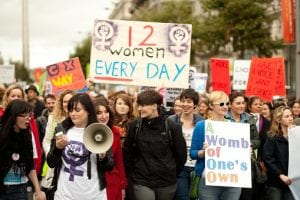Welcome to the latest Lawyer Portal weekly news summary. This post will cover the legal news stories from 12th – 18th June. In this week’s news; lawyers line up to offer free help to Grenfell Tower residents in the wake of the devastating fire which engulfed the 24-storey tower block on 14th June, the Solicitors Regulation Authority (‘SRA’) have announced plans for a cap on profits made by the future provider of the super-exam, and the Supreme Court has narrowly rejected the Northern Ireland free abortions appeal.
Lawyers have rallied together to offer free legal services to victims of the Grenfell Tower disaster. Following the horrific fire which burned for over 24 hours, the list of future legal challenges has been growing throughout the past week. The claims are likely to range from complex compensation and insurance claims to criminal action against the local authority and key government departments whose negligence has been highlighted as a potential cause of the fire.
In the wake of the disaster it has been stated that individual residents as well as the local campaign organisation, Grenfell Action Group, tried to obtain legal advice over safety concerns but were prevented from doing so due to devastating cuts to legal aid. The changes to civil legal aid in England and Wales which took place in 2003 have meant certain types of cases — including divorce, welfare, employment and housing (except in limited circumstances) — were no longer eligible for free legal support.
Many lawyers have taken to social media to express their shame and anger at the situation which lead to some of the most vulnerable in society being ignored. As well as offering help and free legal advice, lawyers are also working to establish trusts to ensure that money raised by campaigns on sites such as GoFundMe is handled appropriately. Speaking to the Evening Standard, Jolyon Maugham QC, said he had visited the North Kensington Law Centre, which will be the locus for those seeking legal advise, to find it was “drowning in offers of help”.
The Government has pledged to cover “further expenses” for the victims of the Grenfell Tower fire, on top of the £5 million already promised, and will rehouse those affected within three weeks.

The Supreme Court has ruled that Northern Irish women are not entitled to free abortions. A mother and daughter brought the case which was decided by a majority of 3:2. The appellants argued that women living in Northern Ireland should be entitled to abortions on the NHS in England.
It was argued that the Secretary of State for Health failed to discharge his s.3 National Health Service Act 2006 duty by not requiring abortion services to be provided to Northern Irish women in England. This failure was proposed to be an infringement of Article 8 (right to private and family life) and Article 14 (right against discrimination) of the European Convention on Human Rights. However, the judicial review did not succeed.
Over 700 Northern Irish women came to England last year to have abortions due to Northern Ireland’s much stricter abortion laws. These women would have had to pay between £400 and £2,000 to have the procedure performed privately. However, the health secretary has a policy of not funding medical services in England that would be unlawful if received in Northern Ireland.
The court was narrowly persuaded by the government’s argument with Lord Wilson stating that allowing the appeal would “precipitate both a substantial level of health tourism into England from within the UK and from abroad and a near collapse of the edifice of devolved health services.”
Nonetheless, women’s rights campaigners were encouraged by the division amongst the judges; Lord Kerr and Lady Hale, the two most senior members of the court, agreed with the appellants’ arguments. The appellants in the case have indicated their intention to continue the fight and appeal to the European Court of Human Rights in Strasbourg.
The SRA will impose a cap on profits made by the supplier chosen to run the super-exam assessment. On Thursday, the SRA opened the tender for a provider to administer the Solicitors Qualifying Exam (‘SQE’) from September 2020. It was stipulated that the provider of the SQE must be sufficiently separated from any training providers in order to prevent any conflict of interests. The SRA also intends to keep a tight control over everything form the contents and marking of the exam to the fees paid by candidates, which must remain ‘broadly stable’ and represent ‘value for money’.
To prevent candidates having to pay excessive fees, this being is one of the key aims of the new route to qualification, any profits beyond a certain level will be paid into a ‘re-investment fund’. How this fund is utilised will be at the discretion of the SRA.
The qualification will be in two parts: a computer-based exam testing legal knowledge and a series of practical assessments. The transitional period for implementing the new SQE could take some time. The SRA have indicated that they have a preference for a “lengthy transition period” and some have speculated that this could run until 2030 meaning students will be able to choose between the new and existing routes to qualification in the meantime.
Words: Mariya Rankin
